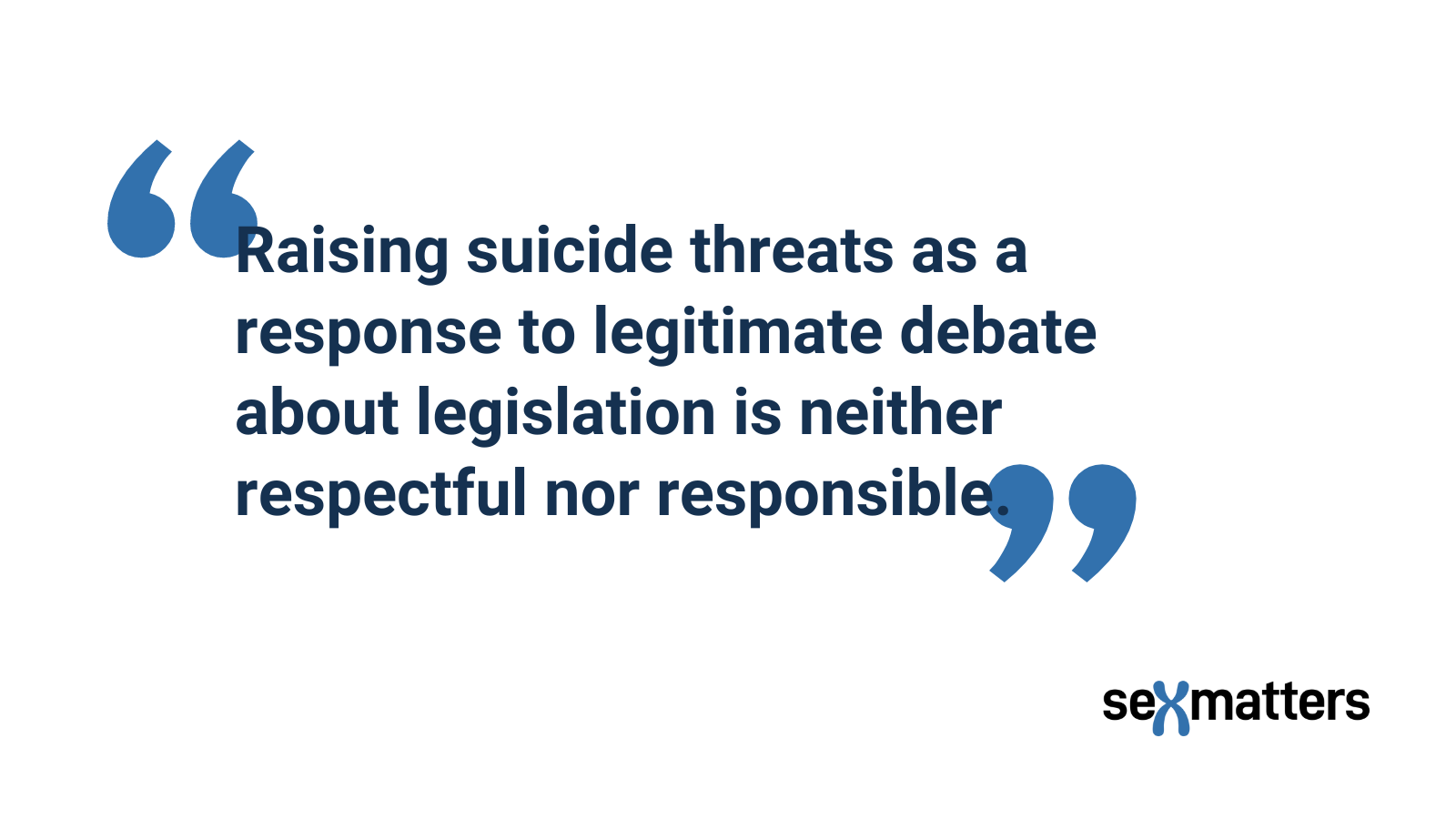Statement on the reference to suicide made during the Westminster Hall debate

Yesterday during the debate on the definition of sex in the Equality Act, Kirsty Blackman MP referred to a trans constituent she said had contacted her:
“When they heard about biological sex being included in the Equality Act and this change being made, they said, ‘What hope is left? Should I just kill myself now and be done with it?’”
Tonia Antionazzi MP had opened the debate calling for members from all parts of the House to “model the respectful, adult conversations that are needed across society. We can demonstrate, here at Westminster, that we can freely express and listen to different opinions.”
Raising suicide threats as a response to legitimate debate about legislation is neither respectful nor responsible.
Suicide threats (“Would you prefer a dead daughter or a live son?”) are an all-too-frequent feature of propaganda about transition. It is often argued that children and young people who identify as transgender are at risk of suicide if not affirmed. This is not backed up by evidence, and the commonly cited studies are weak. Figures from the Tavistock GIDS show that four patients were known or suspected to have died by suicide between 2010 and 2020, out of about 15,000 patients undergoing treatment or on the waiting list. While this rate is higher than for adolescents of similar age, this cohort is known to suffer from mental-health comorbidities that raise the risk of suicide, and the figures shed no light on whether medical transition would reduce that risk.
Spreading alarmism about suicide is unethical. Self-harm and suicidal ideation are known to be contagious. Sensational and excessive reporting has been shown to increase the likelihood of imitational suicidal behaviour among vulnerable people, including young people.
Suicide threats can also be a form of emotional abuse, used as a form of coercive control and manipulation.
